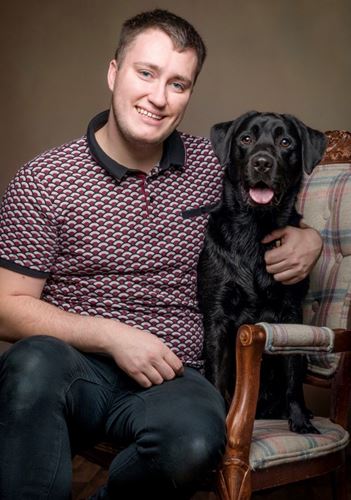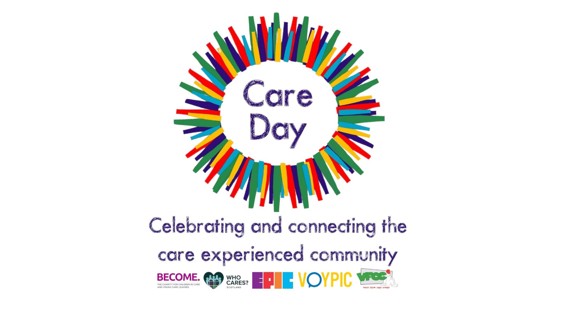Alistair Reflects on the Challenges of the Past Year
As twenty-seven-year-old HND Events Management student Alistair Stewart reflects on the challenges of the past year, he credits the use of a Wellness Recovery Action Plan with helping him to cope during the height of the pandemic.
We caught up with Alistair as part of our EC Cares campaign to ask about the challenges of being a student during lockdown, and find out his tips for boosting mental health and wellbeing.
“At the start of the pandemic I wasn’t overly phased by it. I was annoyed that I would have to study from home for the remainder of my Access level course, and I had hoped to return to College in September, which didn’t happen. I found it very frustrating that I had less support in place than I did before the start of lockdown, but that’s mainly because there were more people needing assistance than ever before. Personally though, lockdown has opened my eyes to a lot of things and has made me cherish what I have in my life now, and to not take anything for granted. It also made me realise that if I put my mind to it, I can still achieve my goals, regardless of any obstacles.
“The College has been very supportive throughout lockdown. The lecturers have managed to adapt their teaching styles in such a way that makes it easy to learn from home. They fully understand that we all have different learning abilities and are really good at giving us time to discuss things one-to-one, as well as being available on Microsoft Teams or via email. It’s great to have such a supportive lecturing team on my course.
“There are a number of ways in which I managed to cope with lockdown, but there were two main ones. Firstly, I used what is called a Wellness Recovery Action Plan (WRAP) which helped me to identify my circle of support, create a daily maintenance plan of things I need to do to ensure my mental health is at a stable level, and also identify things such as triggers and early warning signs to look out for to stop me from reaching that low point that I have previously hit. Secondly, I made sure that where possible, I always had some me-time, whether that be taking my dog for a walk in the woods, or getting my pyjamas on and watching something on Netflix. Having me-time is extremely important for your wellbeing to ensure that you don’t burn yourself out.
I used what is called a Wellness Recovery Action Plan (WRAP) which helped me to identify my circle of support, create a daily maintenance plan of things I need to do to ensure my mental health is at a stable levelAlistair Stewart - HND Events Management
“To keep myself busy I did a few Open University modules to help better my understanding on Business Management, and Financial and Cost Accounting. These specific topics will come in handy for the future. I also did some baking as I love making cakes, although I haven’t quite mastered how to make a cheesecake yet! I also went walking with my black Labrador Jack, to get out of the house and explore nature. I also ran weekly Zoom sessions on a Sunday for adults who had been through recovery. It was an informal drop-in just to catch up with each other and have someone to talk to.

“Studying from home has been really challenging. I don’t exactly have a specific area within my flat that I can class as my ‘study space’ and a separate space to class as my ‘chill space’ which makes it hard to switch off sometimes. Being someone with ADHD and Dyslexia it is also really hard to stay focused when you’re at home as there are lots of distractions. Being able to manage my workload has proven difficult and has been extremely stressful. I will admit, I’ve been close to a breakdown but on the flip side, I managed to pull through and get the work done which I didn’t think would be possible.
“I have a mental illness called Bipolar which can drastically change my moods on a daily basis. There are often days where I don’t want to go out of my house and face society, so having the chance to stay at home in my comfies, and just sign in on my laptop and listen to my lecturers and take some notes can be beneficial because I’m not missing out on any coursework and still participating in class activities and discussions but from the comfort of my safe space.
“My top tip for coping with the pandemic is to remember that this isn’t going to be here forever. Yes, it has put on hold a lot of things within our lives, but we will get through this, together. Always make sure you have time to switch off and focus on yourself. Don’t be scared to reach out to those in your circle of support about how you’re feeling. No one should suffer in silence. Try to find something to keep yourself busy, whether that be learning how to sew, or doing an online course. Find time to explore nature, and maybe even take up hobbies such as photography. There are lots of things you can do to help you cope through a pandemic, you just have to find what is right for you.”



